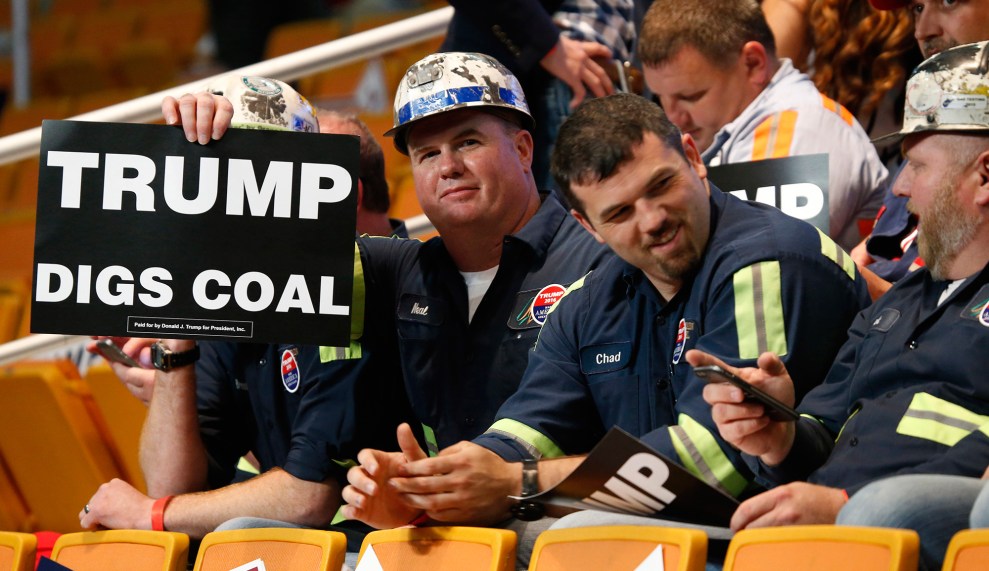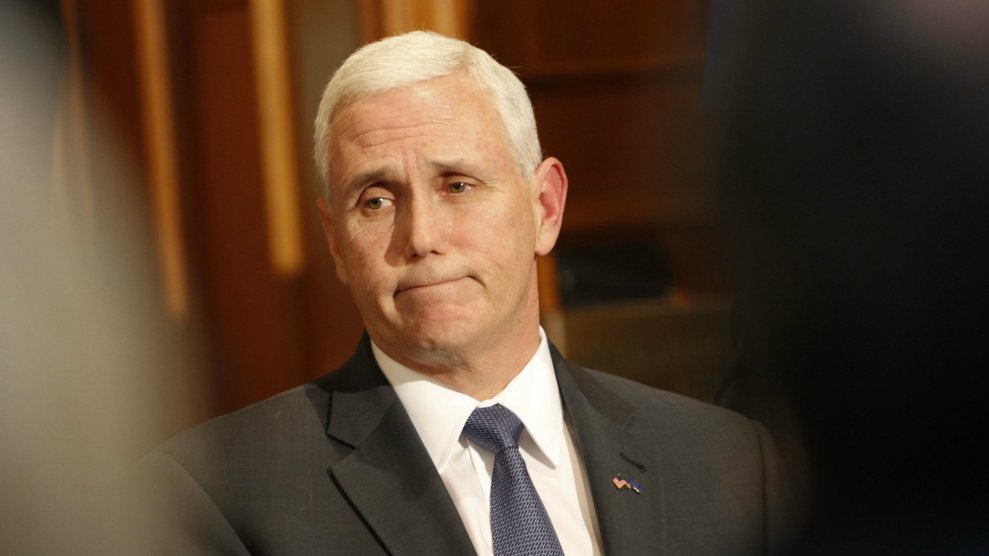Gary Johnson, the Libertarian candidate for president, takes what he calls the “long-term view” of climate change. “In billions of years,” he said in 2011, “the sun is going to actually grow and encompass the Earth, right? So global warming is in our future.”
The former New Mexico governor did acknowledge that humans are making the world warmer in the near term, too—but he doesn’t think the government should do much about it. In the same speech, he denounced “cap-and-trade taxation,” said we “should be building new coal-fired plants,” and argued that the “trillions” of dollars it would cost to combat climate change would be better spent on other priorities.
All of that makes Johnson’s popularity among younger voters pretty surprising. Surveys have consistently found that millennials care deeply about climate change. A November 2015 ABC News/Washington Post poll, for example, found that 76 percent of 18- to-29-year-olds see global warming as a serious problem, and 64 percent want the federal government to do more to combat it. Nevertheless, a recent Quinnipiac poll found that Johnson is now running second among 18- to-34-year-old voters, just 2 percentage points behind Hillary Clinton.
Johnson’s 2011 comments weren’t an aberration. Over the past few years, he has spoken out repeatedly against environmental regulation. In a 2011 NPR interview, he instead called for a “free-market approach” to reducing carbon emissions, arguing that consumer demand for cleaner energy, coupled with cheap natural gas, was causing a shift away from coal. He made the same argument during a Libertarian presidential candidate debate in May 2012. “If government gets involved” in fighting climate change, he said, “we are going to be spending trillions of dollars and have no effect whatsoever on the desired outcome.”
During his 2012 campaign, Johnson called for cutting federal spending by 43 percent. In one interview, he noted that this would also mean a 43 percent reduction in the Environmental Protection Agency’s budget. (During that same interview, he repeated his statement about the sun eventually destroying the planet: “Long-term consequence of our existence in the whole scheme of things is the sun is getting closer to the Earth and that at a point in the very distant future, the sun will actually encompass the Earth. So global warming is something that’s going to be inevitable.”)
For most of his 2016 campaign, Johnson has maintained his opposition to government efforts to deal with global warming. His campaign website acknowledges that the climate is “probably” changing and that humans are “probably” contributing to that change. But, it adds:
[T]he critical question is whether the politicians’ efforts to regulate, tax and manipulate the private sector are cost-effective—or effective at all. The debate should be about how we can protect our resources and environment for future generations. Governors Johnson and [Libertarian vice presidential nominee William] Weld strongly believe that the federal government should prevent future harm by focusing on regulations that protect us from real harm, rather than needlessly costing American jobs and freedom in order to pursue a political agenda.
In July, Johnson was asked during on appearance on Real Time with Bill Maher whether he had a “comprehensive plan to combat climate change.” Johnson’s answer: “No.” He went on to argue that the coal industry’s recent struggles were a result of free-market forces (such as cheap natural gas) rather than the Obama administration’s new climate regulations. (Many experts say both factors have played significant roles in coal’s decline. Former Climate Desk reporter Tim McDonnell has argued that of the two, the market forces are indeed more important.)
But then Johnson’s stance changed dramatically. In an August interview with the Los Angeles Times, he announced he was “open” to the idea of the federal government imposing a revenue-neutral tax on carbon emissions. Economists have long viewed a carbon tax as the most efficient way of putting a price on greenhouse gas emissions in an effort to limit warming—many see it as preferable to the complex cap-and-trade proposal backed by President Barack Obama during his first term. In a subsequent interview on CNBC, Johnson called a carbon tax a “very libertarian proposal” under which “the market will take care of” climate change. (During the Democratic primaries, Bernie Sanders endorsed a carbon tax; Clinton did not.)
Many Libertarians and conservatives were outraged by Johnson’s sudden embrace of a carbon tax. “It’s Official: Gary Johnson Is a Left-Wing Candidate,” declared the Federalist, a conservative publication. After plenty of public criticism from the right, Johnson changed his mind, telling supporters at a New Hampshire rally that after considering a carbon tax, “I have determined that, you know what, it’s a great theory, but I don’t think it can work, and I’ve worked my way through that.” His flip-flop drew loud applause from the crowd.
Johnson elaborated in an interview the following day with the libertarian magazine Reason. He declared himself a “skeptic” when it comes to the idea “that government policy can address” climate issues and said a carbon tax “sounds good in theory, but it wouldn’t work in practice.”
“So, no support for a carbon fee,” Johnson added. “I never raised one penny of tax as governor of New Mexico, not one cent in any area. Taxes to me are like a death plague.”
And besides, what good will all those taxes do for us when the sun engulfs our planet?

















